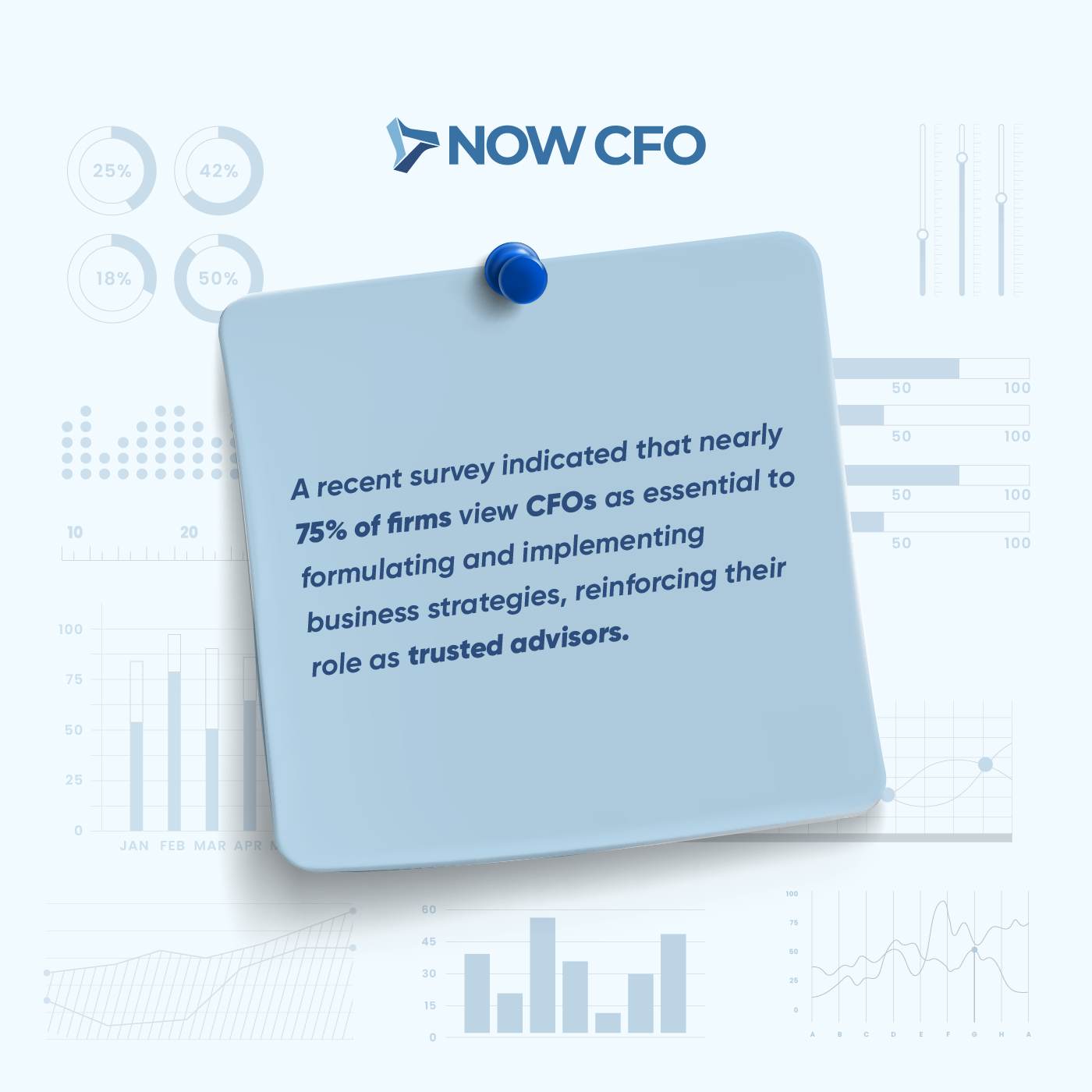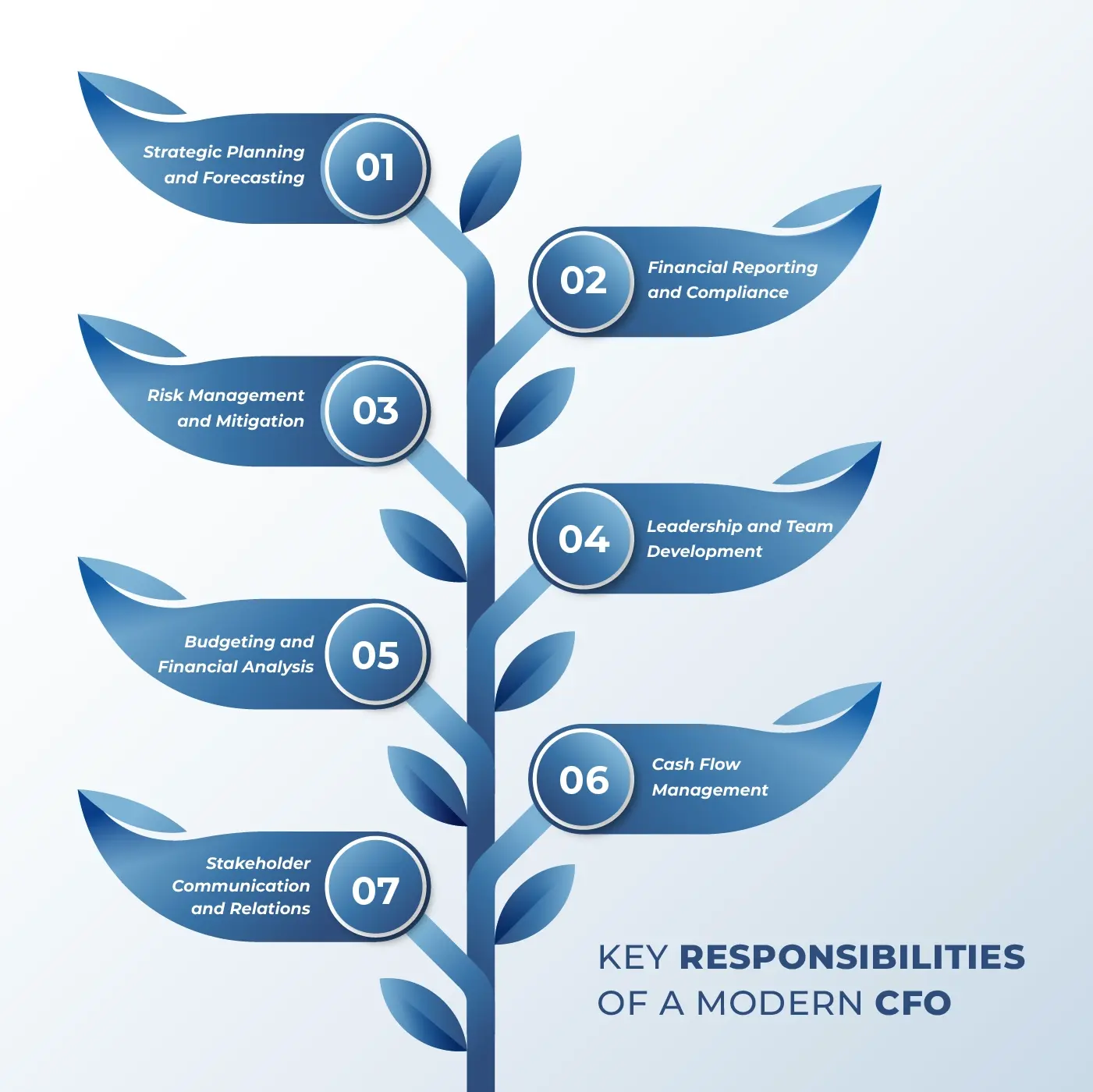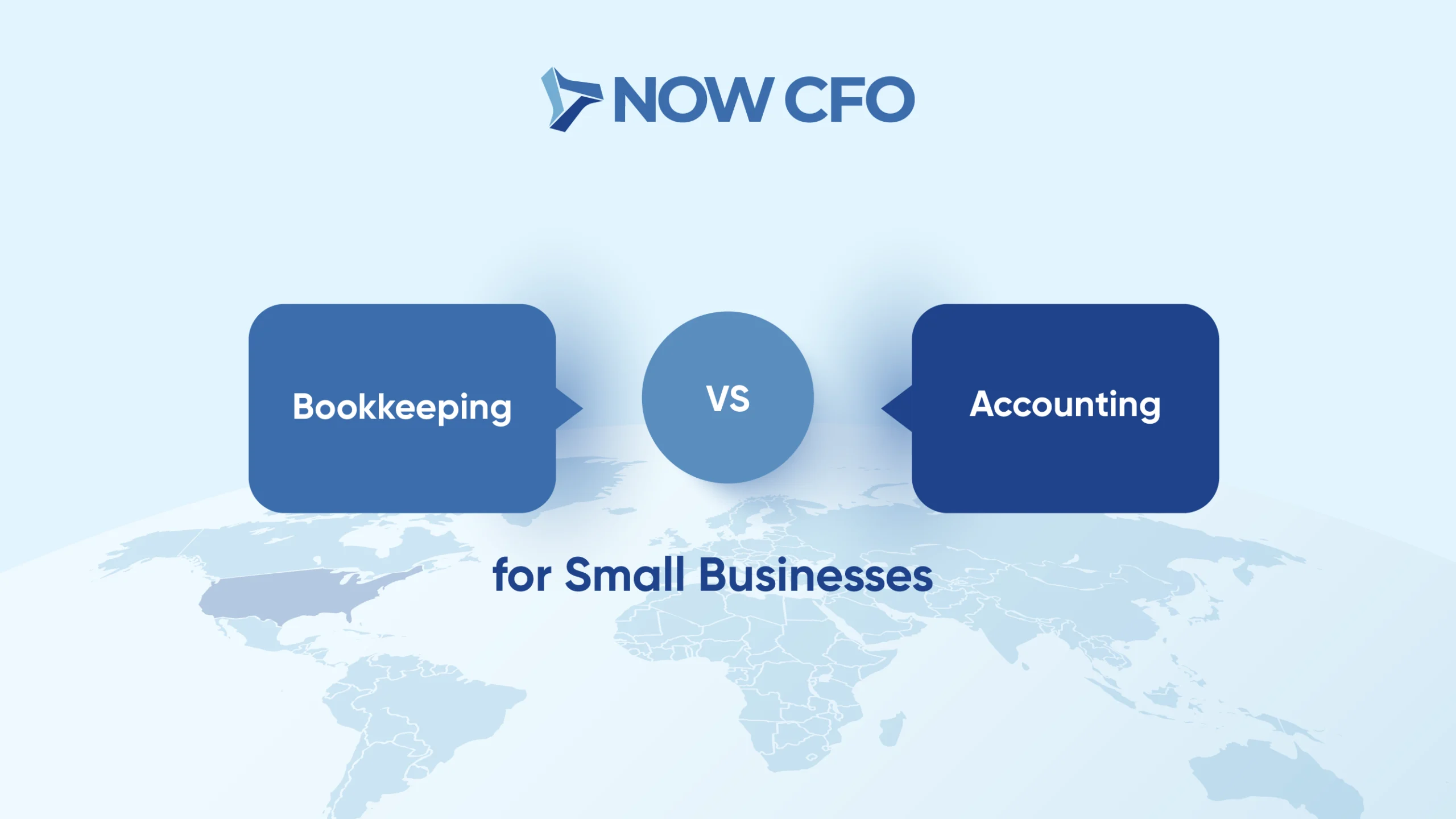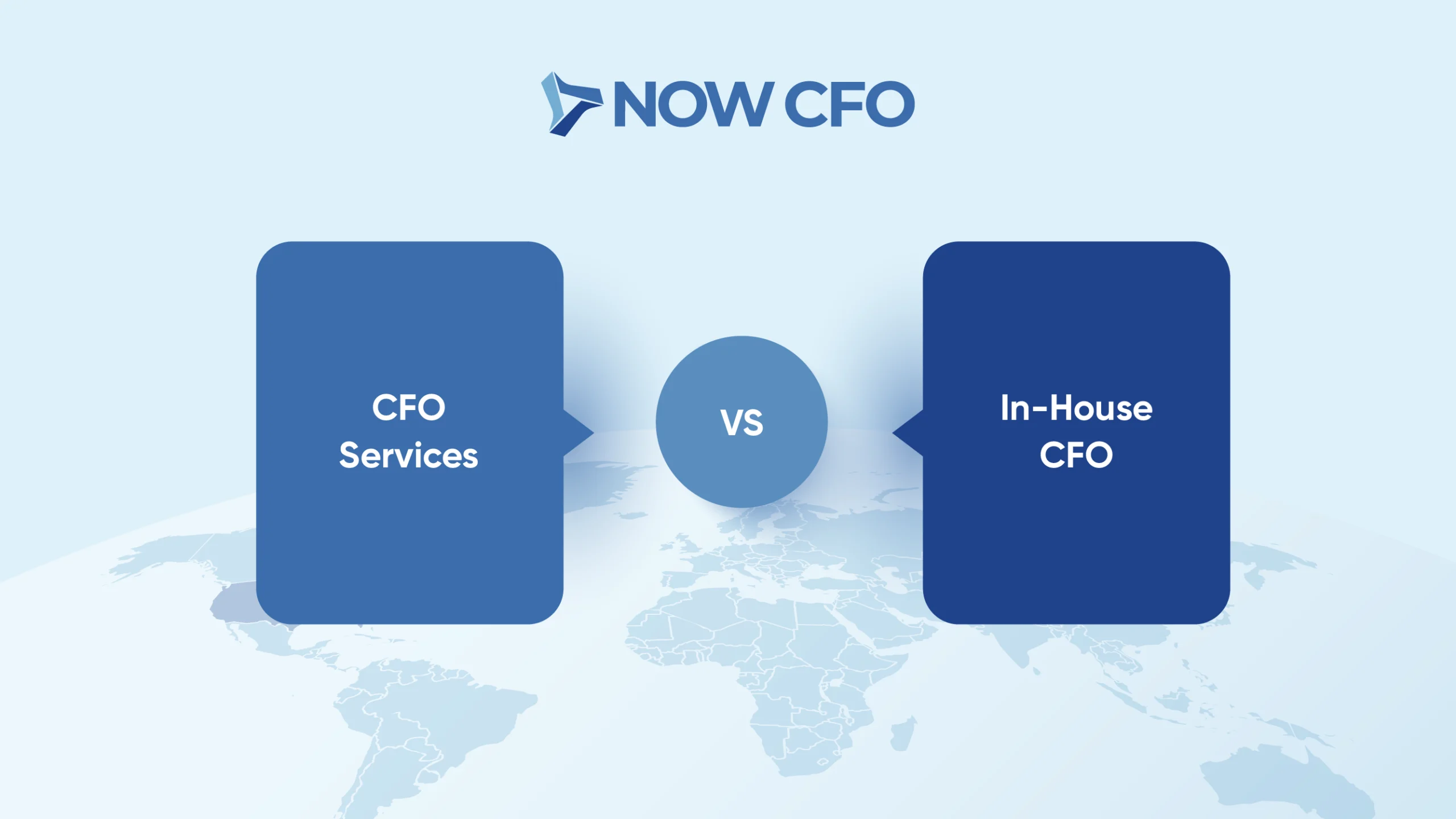
The role of a CFO in modern business has become indispensable, evolving from financial oversight to a strategic leadership position. 92% of CEOs in the US and 63% of CEOs worldwide need to make their CFOs critical strategic partners tasked with balancing financial performance.
This evolution highlights the importance of a CFO in modern business as a financial steward and vital driver of growth and decision-making.
Understanding the Evolving Role of a CFO
In the past, the role of a CFO was mainly focused on traditional responsibilities like managing financial reporting and overseeing accounting functions. However, CFOs’ expectations have shifted dramatically as businesses rely on strategic financial management to drive success.
A Historical Perspective of the CFO Role
Traditionally, CFOs were financial gatekeepers responsible for ensuring compliance, accuracy, and fiscal accountability. These executives focused mainly on financial reporting and compliance tasks.
However, the landscape began to change, driven by dynamic market forces and increased competition. For example, CFOs now report higher influence over strategic decisions, with many actively collaborating with CEOs on significant initiatives.
Changes in Financial Responsibilities
Moreover, with these shifts, the role of CFOs has transformed to meet modern challenges. Strategic planning and financial forecasting have become central elements of their job descriptions. CFOs today must analyze market trends, mitigate risks, and align financial strategies with broader business objectives.
This expanded responsibility enables them to provide invaluable insights to the board and the leadership team.
- A recent survey indicated that nearly 75% of firms view CFOs as essential to formulating and implementing business strategies, reinforcing their role as trusted advisors.

Key Responsibilities of a Modern CFO
The role of a CFO in modern business goes far beyond traditional financial management. Furthermore, modern CFOs must implement business growth strategies while ensuring economic stability. This evolution has introduced new responsibilities that require strategic foresight, strong leadership, and proactive risk management.

1. Strategic Planning and Forecasting
CFOs are increasingly responsible for strategic planning and financial forecasting, which includes evaluating market trends and aligning financial strategies with the company’s overall goals. This role enables CFOs to provide actionable insights that help steer the business toward sustainable growth.
HBS highlights that modern CFOs must actively participate in strategic decisions, using financial data to inform and optimize critical business choices.
2. Financial Reporting and Compliance
Another significant duty is maintaining financial reporting and compliance. CFOs must ensure the integrity of financial statements, which are vital for investor confidence. Compliance with regulations like the Sarbanes-Oxley Act is non-negotiable, as it requires CFOs to be personally accountable for accurate financial disclosures.
This function also involves internal controls and audits to mitigate risks, protecting the organization from potential regulatory breaches and financial misstatements. The increased compliance scrutiny stems from high-profile corporate scandals, underscoring the need for reliable financial leadership.
3. Risk Management and Mitigation
While managing traditional financial risks is a core duty, modern CFOs also focus on broader challenges, such as cyber threats and economic shifts. They must develop robust strategies to minimize these risks while capitalizing on opportunities.
Furthermore, the CFO’s role in business valuation emphasizes their responsibility to steer organizations through turbulent market conditions.
4. Leadership and Team Development
Today’s CFO must also excel in leadership and team development. Building a competent finance team that understands the company’s strategic direction is crucial for efficient cash flow management and executing business plans.
Also, CFOs frequently collaborate with HR and other departments to cultivate a culture that aligns with the company’s mission and vision.
5. Budgeting and Financial Analysis
CFO’s role in navigating financial challenges and budgeting is vital. They must ensure that all financial plans are accurate and aligned with the organization’s strategic goals.
Modern CFOs leverage advanced analytics to forecast potential financial outcomes and identify growth opportunities. This requires proficiency in data interpretation and an understanding of industry-specific trends.
6. Cash Flow Management
Another essential task is cash flow management, ensuring the company has the liquidity needed for smooth operations. CFOs oversee strategies to optimize cash flow, such as renegotiating supplier contracts or adjusting payment terms. Maintaining healthy cash flow is vital for sustaining operations and funding new projects.
7. Stakeholder Communication and Relations
Finally, communication is a core competency for CFOs today. They serve as the bridge between the executive team, investors, and other stakeholders, articulating the company’s financial health and prospects. This is not just about sharing numbers; it’s about building trust and conveying a cohesive narrative that aligns financial performance with business goals.
The CFO’s Contribution to Business Growth
As businesses navigate dynamic markets, the role of the CFO in driving growth has expanded significantly. Modern CFOs are pivotal in aligning financial strategies with overarching business goals. They are no longer just financial stewards but strategic partners essential to a company’s long-term success.
Aligning Financial Goals with Business Objectives
Business growth is one of the key responsibilities of a CFO in organizations that contributes to business growth by aligning financial goals with business objectives. This involves creating and monitoring budgets that manage current expenses and prepare the company for future investments.
CFOs use their expertise in strategic financial management to identify expansion opportunities, whether through mergers, acquisitions, or entering new markets. For example, through advanced financial forecasting and strategic investments, CFOs help companies adapt to changing market conditions.
To illustrate, a study by Wharton highlights that CFOs increasingly collaborate with CEOs and other executives to create sustainable growth strategies. This approach transforms CFOs from financial analysts into proactive strategists influencing company direction decisions.
Implementing Efficient Financial Practices
Equally important is the implementation of efficient financial practices. CFOs streamline processes to enhance economic performance and capitalize on resources effectively. This can include refining cash flow management, improving operational efficiency, or reducing unnecessary expenditures.
Additionally, CFOs focus on risk management, ensuring the company’s growth strategies are resilient against market fluctuations and uncertainties. Financial leadership boosts the company’s capacity to scale operations sustainably when implemented effectively.
Skills Required for a Successful CFO
The role of a CFO has shifted from a purely financial focus to a multi-dimensional leadership position, necessitating a diverse skill set. In addition to financial acumen, CFOs need strategic thinking, communication, and technology competencies to excel in today’s dynamic business environment.
1. Analytical Thinking and Problem-Solving
First and foremost, analytical thinking remains the cornerstone of financial leadership. CFOs must analyze vast datasets and extract meaningful insights that guide business decisions. This capability extends beyond reviewing numbers; it’s about interpreting trends and anticipating future financial risks and opportunities.
Successful CFOs must enhance their financial decision-making skills to better serve as strategic advisors to CEOs. This requires mastering techniques like financial forecasting and risk management, which are essential for navigating volatile markets.
2. Communication and Leadership Skills
Additionally, as CFOs increasingly work alongside CEOs and board members, strong communication and leadership skills are indispensable. CFOs often convey complex financial information to non-financial stakeholders, including investors and senior executives.
This means simplifying intricate data to ensure everyone understands the economic implications of strategic decisions. Beyond just communication, leadership is critical in managing and motivating finance teams to align with the company’s strategic direction.
- Key leadership qualities CFOs need integrity, accountability, and the ability to inspire collaboration across teams.
3. Technological Proficiency
Lastly, proficiency in emerging technologies is non-negotiable for the modern CFO. As businesses increasingly rely on digital tools, CFOs must harness technologies like data analytics, AI, and financial software to drive efficiency and improve decision-making.
Programs such as those offered by Stanford emphasize the importance of leveraging technology to enhance strategic financial management capabilities. You can transition from traditional number crunchers to critical players in strategic financial leadership by honing these skills required for effective CFO leadership.
Conclusion
As the role of a CFO continues to expand, businesses must align their financial leadership with strategic goals. Whether it involves improving forecasting or enhancing team leadership, CFOs can significantly influence company success.
Businesses looking to leverage expert financial leadership should consider partnering with experienced professionals. Contact Now CFO to discover how our fractional CFO services can help your business navigate financial complexities and achieve strategic growth.














